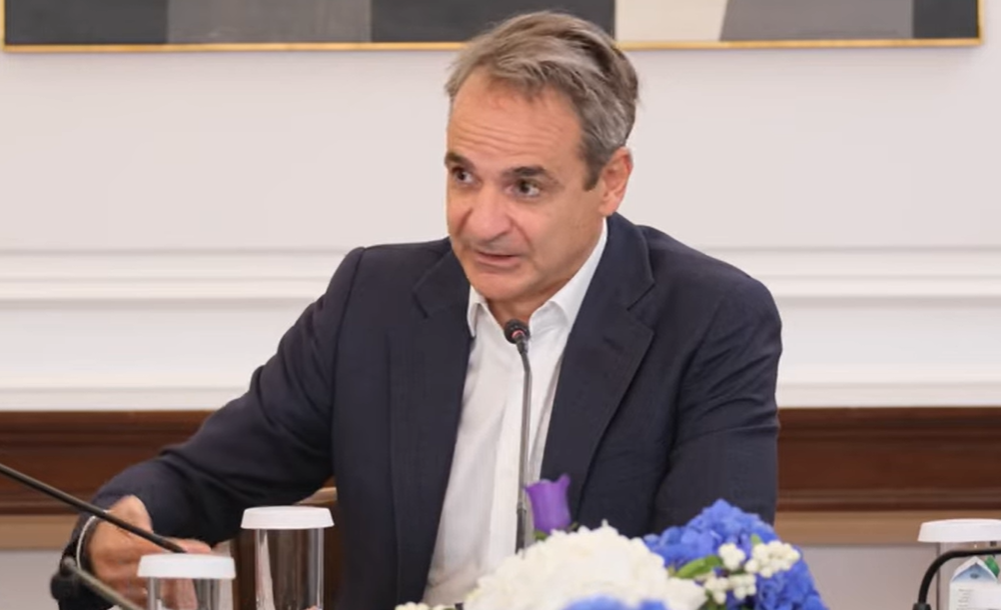One especially intriguing example of the relationship between financial privilege and political leadership is Greece’s Prime Minister, Kyriakos Mitsotakis. His declared wealth of approximately €1.5 million is more than just a figure; it provides insight into the connection between contemporary governance and dynastic politics. His holdings in real estate, deposits, farming, and inheritance show how political power is maintained by financial stability in a country where economic instability has long been a defining feature.
A diversified financial life is depicted in vivid detail by the assets. In addition to his salary, Mitsotakis reported €11,710 from real estate, €35,842 from cumulative salaries and allowances, and €3,692 from agricultural activity. Though it may seem insignificant in comparison to tycoons or shipping magnates, this tiered income structure demonstrates an incredibly strong system of resilience. Debates concerning whether transparency fosters trust or merely highlights the divide between citizens and leaders have been reflected in recent days in public discussions surrounding his finances.
This story is made much more adaptable by Mitsotakis’s wife, Mareva Grabowski. Her declared capital gains as a fashion entrepreneur and co-founder of Zeus+Dione were €173,823, €34,000 from real estate, and over €140,000 from asset sales, inheritances, and allowances. Their household is remarkably similar to couples such as Emmanuel and Brigitte Macron, whose personal wealth underpins their professional influence, in that they work together as a financial partnership. The combination of entrepreneurial spirit and political influence is especially advantageous when it comes to influencing public opinion.
Table: Kyriakos Mitsotakis – Personal and Professional Information
| Category | Details |
|---|---|
| Full Name | Kyriakos Mitsotakis |
| Date of Birth | March 4, 1968, Athens, Greece |
| Profession | Politician, Prime Minister of Greece |
| Political Party | New Democracy (center-right) |
| Office Held | Prime Minister since July 2019 (except one-month gap in 2023) |
| Education | Athens College, Harvard University, Stanford University |
| Reported Net Worth | Estimated around €1.5 million (2023 declaration) |
| Declared Assets | Deposits of over €1.29 million and $87,000; 39 real estate properties |
| Spouse | Mareva Grabowski (businesswoman, fashion entrepreneur) |
| Family Background | Son of Konstantinos Mitsotakis (former Greek Prime Minister) |
| Reference Link | https://en.wikipedia.org/wiki/Kyriakos_Mitsotakis |

The 39 properties that have been declared, along with deposits of more than €1.29 million for Mitsotakis and almost €569,000 for his wife, put the couple well above the average Greek, many of whom are still dealing with the effects of recession. Relatability has been questioned due to the size of holdings, but supporters contend that the Prime Minister’s stability makes him incredibly dependable in handling matters without giving in to outside pressure. His deliberate openness conveys a sense of autonomy and responsibility.
Greek politics have a long history with the Mitsotakis name. Konstantinos Mitsotakis’ son Kyriakos comes from a dynasty that has been influencing the course of the nation for generations, and is frequently likened to the Kennedys. Hereditary prominence in leadership is both a benefit and a drawback, providing networks but also exposing one to ongoing scrutiny. In addition to inheriting wealth, Mitsotakis has inherited the expectation of leadership excellence, which he aims to uphold through economic stabilization and reforms.
Comparative analysis shows how his fortune fits into the political spectrum on a global scale. In contrast to Rishi Sunak, who is frequently criticized in Britain for his enormous wealth from the financial industry, Mitsotakis’s holdings are noticeably modest but noteworthy for their unique fusion of political heritage and modern entrepreneurship. The wealth of Mitsotakis seems restrained when compared to billionaires such as Silvio Berlusconi, who prioritize function over flamboyance.
Wealth shields leaders from the suffering of the populace, according to critics, especially in times of inflation or housing shortages. Other people, however, argue that having financial independence gives leaders the ability to fight corruption and make more informed decisions. Voters in Europe are considering whether wealth strengthens or weakens leadership, and this debate is prevalent throughout the continent. Mitsotakis has significantly enhanced the conversation in Greece about political accountability by incorporating wealth into open declarations.
Wealth declarations are symbolic of more than just individual wealth; they also represent a change in cultural norms. In addition to their income, citizens want to see how leaders uphold integrity by being open and honest. Since the implementation of these policies, public awareness has grown dramatically, changing the way Greeks view government. Despite the fact that it occasionally causes controversy, this process is very effective at establishing trust.
Mitsotakis views his wealth as both personal and representative of larger themes, such as the tenacity of political dynasties, the need for openness, and the precarious equilibrium between privilege and service. The way his story combines political responsibility, entrepreneurial spirit, and family legacy to create a hybrid character who represents both tradition and modernity makes it especially inventive.


